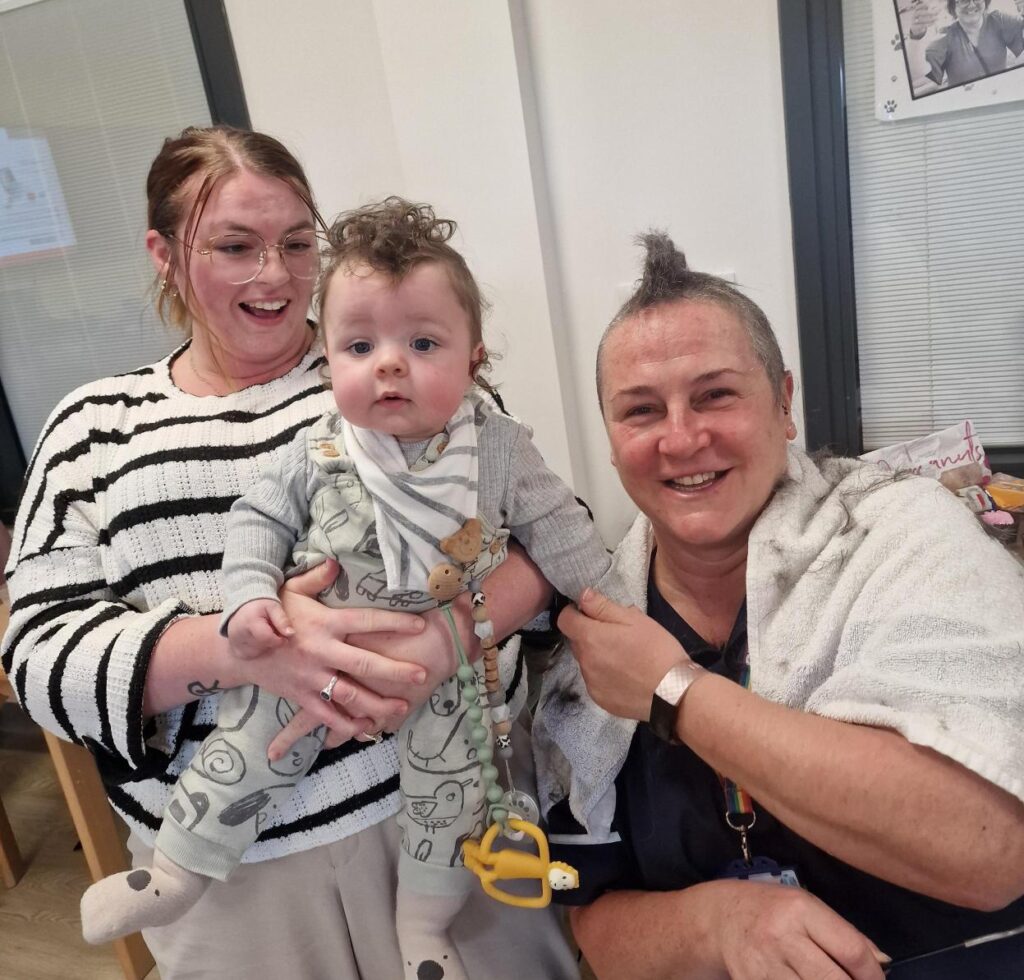Phlebotomy is a lot more than just taking blood
Written by John Williamson on 05/12/2017
Over the years they’ve been called all sorts of names from “vampires” to “blood takers”, but this doesn’t get the phlebotomy team at the Royal Lancaster Infirmary (RLI) down in the dumps.
In fact it makes them more determined for people to understand exactly what they do day-to-day and that their role is a very important one in the overall chain of patient diagnosis and care.
Today, I have the pleasure of finding out more about phlebotomy from Karen Parker, Phlebotomist Supervisor and phlebotomists Catherine Weatherhead and Helen Watts – from my observations I can confirm that the trio do not have pointy fangs or other supernatural abilities.
Catherine, a former auxiliary nurse who has worked in the role for nine years, says: “You have to have a sense of humour in this profession because people will have a joke about the role as they have never heard of a phlebotomist before. Sometimes it is a way of a patient taking their mind off it if they are nervous about having their bloods taken – maybe a fear from childhood or their last experience wasn’t so pleasant.
“Taking blood is something that not everyone can do – it is a skill that takes a lot of practice. It is not about looking for the right vein as you need to avoid hitting arteries and tendons. You need to feel for it – a good vein should feel nice and bouncy and spongy.
“We always go into patients with a smile on our faces because our role is to instil confidence into the patient and build up a good rapport with them because we want them to have a relaxed, pain-free and positive experience.”
The Phlebotomy team at the RLI is a small team which also includes David Emerson, Amanda Parnell, Dawn Weald and Peter Smith. They offer a seven day service covering 13 wards, the Emergency Department and other departments on request.
A team of four phlebotomists can take up to 40 bloods a day between 8am and 12pm – that totals a staggering 160 bloods per day which they deliver to the path lab.
Helen added: “I knew nothing about phlebotomy until I suffered from a bout of glandular fever. When having bloods taken I would always think ‘what a great job this must be’. When my GP told me I had glandular fever I asked my aunty who is a Biomedical Scientist at Alderhey Hospital in Liverpool all about what that means in the blood.
“The process fascinated me and inspired me to become a phlebotomist – I can honestly say it was the best decision I made.
“It’s not just about drawing blood from a patient – you have to build up a strong rapport with your patients, staff on the wards and colleagues in the laboratories where we take blood specimens for testing. You also have to have a strong bond as a team and be able to communicate well at all times.”
The phlebotomy service at the RLI dates back more than 20 years. Karen started her career in health care as an auxiliary nurse and has worked as a phlebotomist since the late 90s. One of the biggest steps for the team was becoming Paper-Lite and adopting the Trust’s Electronic Patient Record System to access requests for patient bloods. They now have a secure laptop on each of their trolleys and are alerted to any urgent requests which come in electronically, rather than relying on paper request forms.
Karen, Catherine and Helen have also been trained in cannulation which involves the placement of an IV cannula ‘tube’ into a patient’s vein so that infusions can be inserted directly into the bloodstream. Cannulation is normally carried out by the nursing staff, but now that the team are cannulating it has freed up time for nurses to spend more time with patients.
The team also undertook a 20 week journey as part of Listening into Action to streamline and improve the phlebotomy service. They now work solo and relocated their storeroom which has cut down their journey time by 20 minutes – meaning even more time to spend with patients and developing their skills. As part of the improvements there is one phlebotomist working an afternoon service from 1pm-4pm Monday-Friday.
“When I first started as a phlebotomist in the late 90s we only worked weekends and over the years there has been a greater demand for the phlebotomy service to free up our nurses on the wards,” Karen says.
“I think we can all say we are really proud to be phlebotomists and all of the positive developments we have contributed to over the years.”
You can find out more about phlebotomy developments at the RLI at https://www.youtube.com/watch?v=GImWwdqr–U





